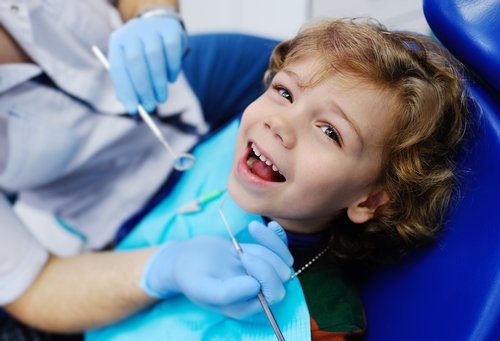Glossary of Important Dental Terms, Part 2
A well-informed patient is a healthier patient, and for a reason. However, there are times when dentists forget that what they say can be overwhelming for their patients. But don’t fret, it’s only a professional, shortened way of explaining your oral health. Feel free to ask questions if you have difficulty understanding their terminology.
Thanks to an oral surgeon with experience in performing emergency extractions in Escondido, we compiled a list of dental terms that may be less familiar to you. So, read on and spare yourself the hassle every time you leave a dentist’s office by learning exactly what’s going on in your mouth.
What are some important dental terms?
During your next dental appointment, you might hear these terms:
- Malocclusion – An improper alignment of upper and lower teeth during biting or chewing.

- Nerve – Transmitting sensations, temperatures, and positions to the brain.
- Nerve (root) canal – Dental pulp; part of a tooth that contains nerves and blood vessels.
- Occlusion – The fit between upper and lower teeth when the jaws are closed.
- Orthodontics – Treatment of misaligned teeth using braces, retainers, and other dental devices.
- Overbite – A vertical overlap of the front teeth caused by an excessive protrusion of the upper jaw.
- Overjet – A horizontal overlap of the front teeth caused by the excessive protrusion of the upper jaw.
- Palate – The roof of the mouth, made up of hard and soft tissue.
- Plaque – The colorless, sticky film that forms on teeth from undigested food particles and saliva.
- Periodontitis – An infection of the bone and soft tissues surrounding the teeth that can lead to tooth loss.
- Periodontal pocket – A gap or opening under the gums surrounding the teeth prone to infection.
- Pontic – A fixed or removable appliance that replaces a tooth.
- Post – A metal rod inserted into a tooth’s root after root canal treatment, providing support for the cap.
- Prosthetics – Replacements for missing teeth, such as bridges, partials, and dentures.
- Pulp – A living part of the tooth consisting of nerve tissue and blood vessels.
- Recontouring – Changing the shape, length, or surface of a tooth by removing small amounts of enamel.
- Remineralization – Restoring the tooth’s mineral content to decayed areas by redepositing its minerals.
- Restorations – Various dental procedures for restoring teeth, such as bridges, dentures, fillings, crowns, and implants.
- Retainer – An appliance worn at night to maintain teeth in a given position.
- Root canal therapy – Cleaning out the pulp chamber, disinfecting it, and filling it with a permanent filling to save an abscessed tooth.
- Scaling and root planing – The removal of plaque and tartar from above and below the gum line (scaling) and smoothing rough patches on the tooth root (planing).
- Tartar – A hard deposit that adheres to teeth and creates a rough surface that attracts plaque.
- TMJ – Refers to a problem with the muscles and joints connecting the lower jaw to the skull. Symptoms of the condition include facial pain and difficulty opening or moving the jaw.
- Transplant – The act of implanting a natural tooth into an empty socket.
- Veneer – An artificial tooth surface made of porcelain or plastic, bonded directly to the front of the teeth.
Get immediate help with emergency extractions in Escondido and the area

Aside from comprehensive tooth extractions and proficient dental implant placements, you can rely on Dr. Tsvetov for plenty of other advanced procedures, whatever the issue may be. Get in touch with us today to set up your initial appointment!
Comments are closed.

